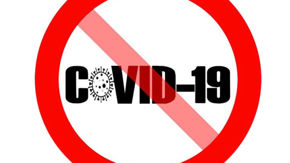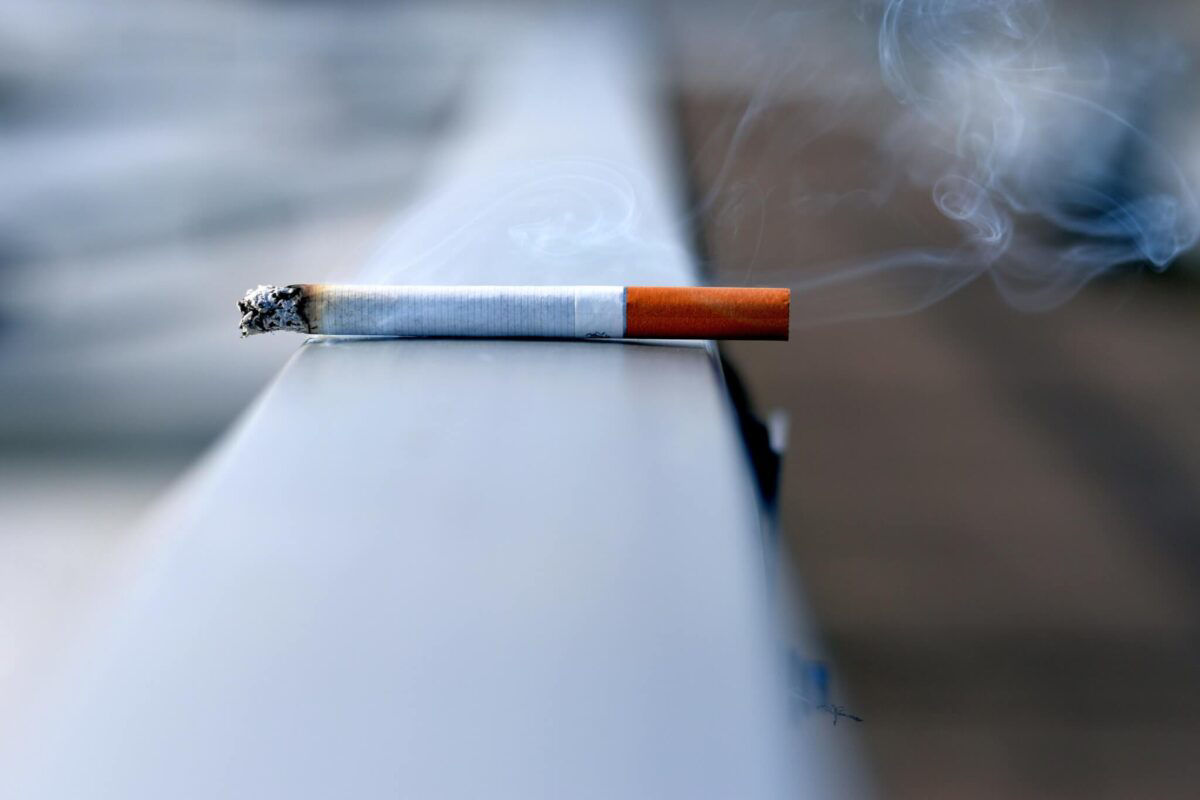In A Nutshell
- One quick question predicts relapse: Feeling “tired of staying quit” flags higher relapse odds whether you quit months or years ago.
- Time still helps: The longer you stay smoke-free, the lower your overall risk. Fatigue matters on top of that.
- Vaping shows a protective link: Daily vapers had lower odds of relapse in this study, even after adjustment. The reasons were not tested.
- Make it practical: Ask yourself at checkups, “How tired am I of trying to stay quit?” High fatigue is a cue to seek extra support, not a failure.
BURWOOD, Australia — Ask anyone who’s quit smoking and they’ll tell you the first few days are brutal. Cravings hit hard, withdrawal symptoms peak, and every moment feels like a battle. But here’s what most people expect: after those initial weeks or months, staying smoke-free should get easier. The body heals, cravings fade, and life as a non-smoker becomes the new normal.
A study of nearly 2,000 former smokers across four countries challenges that assumption. Mental exhaustion from staying cigarette-free doesn’t fade as a predictor over time. When researchers analyzed three measures of quitting difficulty — fatigue, urges to smoke, and confidence — only fatigue remained a significant predictor of relapse when all were examined together. Time since quitting and vaping also showed independent protective effects.
Fatigue predicted relapse regardless of whether someone had been quit for months or years. The finding challenges the belief that relapse risk fades uniformly as quitting gets easier, raising questions about how we support people trying to break free from cigarettes.
How Researchers Discovered the Fatigue-Relapse Connection
Researchers from Deakin University in Australia led the international team that conducted the study. Going into the research, they hypothesized that the predictive power of cessation fatigue would weaken over time as quitters settled into their new habits. The data showed otherwise: exhaustion predicted relapse with similar strength regardless of how long someone had been smoke-free.
Published in Addiction, the study tracked former smokers in Canada, the United States, England, and Australia over six years, with surveys in 2016, 2018, 2020, and 2022. At each baseline wave, scientists asked participants one question: “To what extent are you tired of trying to stay quit?” Follow-ups occurred approximately two years later, when researchers checked who had relapsed.
Those who reported feeling moderately tired had 64% higher odds of relapse. Those who felt very tired faced 81% higher odds. Time since quitting did not moderate the link between fatigue and relapse. The fatigue effect held constant whether someone had been quit for three months or three years.

Breaking a smoking habit for good doesn’t necessarily get easier over time. (© zinkevych – stock.adobe.com)
Why Cessation Fatigue Matters Even Long After Quitting
Common sense says staying quit should get easier as time passes. Physical cravings diminish after the first few weeks as nicotine clears from the body. Situations and places associated with smoking gradually lose their trigger power. Former smokers report feeling healthier, breathing easier, and saving money.
Data confirms part of this story. People who’d been quit for longer did have lower overall relapse rates. Someone smoke-free for two years had 86% lower odds of relapsing compared to someone who’d quit within the past three months.
But here’s the paradox. Long-term quitters had lower overall relapse rates. Yet when someone did report feeling fatigued from staying quit, that fatigue predicted relapse just as strongly after years as after months. A person quit for three years who reported high fatigue showed a similar relative increase in relapse risk as someone quit for three months with the same fatigue level, even though the three-year quitter’s baseline risk was much lower to start.
This pattern shows something important about how behavior change works. Physical challenges of quitting get easier over time. But for some people, the psychological effort required to maintain that change doesn’t necessarily follow the same path.
Researchers tested three different measures: strength of urges to smoke, confidence in staying quit, and cessation fatigue (the mental exhaustion from maintaining abstinence). When analyzed separately, all three predicted relapse. But when examined together, only fatigue remained significant among these task-difficulty measures. Urges to smoke dropped out of the equation entirely. Confidence’s apparent protective effect disappeared. Time since quitting and vaping, however, continued to show independent protective effects.
This hierarchy shows what these measures actually capture. Urges represent the immediate difficulty of wanting a cigarette right now. Confidence reflects someone’s belief about their ability to resist those urges. But fatigue measures something different: the ongoing psychological effort some people expend to stay quit.
Every time someone successfully resists lighting up, it requires mental effort. That effort doesn’t necessarily feel harder over time. The individual moments of resistance may even feel easier as they become routine. But for some former smokers, the sustained vigilance required, day after day, month after month, year after year, continues to exact a psychological toll.
Think of it this way. Holding a five-pound weight at arm’s length feels manageable at first. After a few minutes, the weight hasn’t changed, but the arm begins to shake. After ten minutes, the same weight feels unbearable. The challenge hasn’t intensified; the capacity to meet it has eroded. Cessation fatigue can work similarly. The task of staying quit may not feel harder moment to moment, but the sustained effort can deplete psychological resources over time.
Importantly, this study did not show fatigue increasing with time. Rather, it showed that when fatigue is present, it predicts relapse at any quit length. The research measured whether time-since-quitting changed fatigue’s predictive power and found it did not.
Why People Relapse After Years Without Cigarettes
This helps explain one of the most puzzling patterns in smoking relapse: why people who’ve successfully quit for months or years suddenly return to cigarettes after what seems like a minor trigger.
Traditional thinking attributes these relapses to an especially strong craving overpowering someone’s defenses. Maybe they had a stressful day, drank with friends who smoke, or went through a breakup. The trigger seemed unusually powerful.
But one interpretation supported by the fatigue model is different. The trigger might not have been particularly strong. Instead, the person’s psychological resources to resist it had become depleted through sustained effort. Like the arm holding the weight, the system didn’t collapse because the load increased, but because maintaining the same vigilance for an extended period became unsustainable. However, because the study checked in with participants only every two years, researchers couldn’t capture the specific circumstances or immediate triggers that preceded individual relapse moments.
Among study participants, 9.2% relapsed over the two-year follow-up period. Those who reported no fatigue at baseline had a 6.8% relapse rate, while those who reported no urges to smoke had a 6.9% relapse rate. Among fatigued participants, the relapse rate jumped to 14.5% for those moderately fatigued and 18.8% among the highly fatigued group.
About 60% of participants had quit smoking for at least a year when they entered the study. Many had successfully navigated the early weeks and months when physical cravings peak. They’d built new habits, developed coping strategies, and established themselves as non-smokers. Yet fatigue still predicted their relapse risk.

Being able to just say no after kicking the cigarette habit can get tiring, even after enjoying the success of long-term quitting. (Credit: © Ian Andreiev | Dreamstime.com)
What Factors Reduce Relapse Risk
Researchers analyzed data from 1,914 former smokers who participated in the International Tobacco Control Four Country Smoking and Vaping Survey between 2016 and 2022. These participants provided 2,715 observations across multiple survey waves. Participants completed surveys approximately every two years, answering questions about cessation fatigue, urges to smoke, confidence in staying quit, time since quitting, and use of vaping products.
Several factors reduced relapse risk beyond fatigue levels. Time since quitting had a strong protective effect. People quit for four to six months had 38% lower odds of relapse than those who’d quit within the past three months. Those smoke-free for seven months to a year saw their odds drop by 64%. After one to two years, odds fell by 78%, and after two years, by 86%.
Vaping also appeared protective. Daily vapers had 60% lower odds of relapse than non-vapers initially. But after accounting for fatigue levels, that protective effect weakened to 40% lower odds, though it remained statistically significant. The study found that people who vaped reported lower fatigue levels, suggesting vaping may reduce relapse partly by lowering the psychological burden of staying quit, not just by satisfying nicotine cravings. However, the exact mechanisms weren’t tested in this research.
What Causes Cessation Fatigue in Former Smokers
Why doesn’t psychological exhaustion fade as a predictor over time the way physical withdrawal does? The answer lies in different theories about how self-control and behavior change work.
One possibility is that self-control operates like a muscle that can be temporarily depleted. After hours or days of resisting temptation, the capacity to keep resisting diminishes. Eventually the person gives in, not because they suddenly wanted a cigarette more, but because they ran out of mental energy to keep refusing. If this model were correct, fatigue should peak in the early days of quitting when self-control demands are highest, then fade as cravings diminish.
The study found no evidence that fatigue’s predictive effect weakened with longer time since quitting. When researchers tested whether time-since-quit moderated the relationship between fatigue and relapse, they found no significant interaction. This pattern points to a different mechanism.
An alternative explanation focuses on psychological rather than cognitive exhaustion. Most daily activities become automatic over time. People don’t consciously think about brushing their teeth or locking the car. But for a former smoker, not smoking often remains a conscious choice repeated throughout each day, month, and year. That sustained requirement for active attention and effort may create weariness that persists as long as the vigilance continues.
Smoking was woven into the fabric of daily life for most people who smoked: the morning cigarette with coffee, the smoke break at work, the cigarette after dinner or while driving. Quitting doesn’t just mean stopping one behavior. It means restructuring dozens of daily moments that were previously organized around smoking. That restructuring requires ongoing attention long after the physical withdrawal fades.
For someone five years into a quit attempt, lighting a cigarette might still feel like it could easily happen in a moment of distraction or stress. Vigilance required to prevent that moment may not feel burdensome day to day, but over years, the cumulative psychological cost builds.
Study results showed that 44% of former smokers were using vaping products, and these individuals showed lower fatigue levels and reduced relapse risk. After accounting for their lower fatigue, vaping retained some independent protective effect, though it was weaker than initially observed.
Vaping may reduce fatigue by providing nicotine without requiring complete abstinence from the physical ritual of inhaling. The hand-to-mouth motion, the visible vapor, the throat sensation: these elements might preserve enough of the behavioral pattern that staying smoke-free requires less active effort. But vaping also appears to prevent relapse in ways unrelated to fatigue reduction, possibly by satisfying nicotine cravings directly or providing a behavioral substitute for smoking. The specific mechanisms weren’t directly tested in this study.
How to Reduce Relapse Risk for Long-Term Quitters
Most smoking cessation programs concentrate support in the first weeks or months of a quit attempt, then taper off as people stabilize. Physical withdrawal peaks early, so maximum support when it’s most needed makes sense.
But if psychological exhaustion accumulates over time rather than dissipating, that support model misses a crucial risk period. Someone who’s been cigarette-free for two years might need periodic check-ins to assess fatigue levels and provide support before exhaustion leads to relapse.
The simplicity of the fatigue measure makes screening practical in routine healthcare settings: a single question about how tired someone feels from trying to stay quit. A doctor could ask during annual checkups for former smokers. Those reporting high fatigue could receive targeted interventions focused on managing the psychological burden rather than just resisting cravings.
What would such interventions look like? Though this research doesn’t directly test specific approaches, the fatigue concept points toward several promising directions for future studies. Mindfulness approaches might reduce the sense of constant effort required to stay quit. Repeating a daily mantra to remind oneself of their ability to avoid the urge can be quite helpfu.
Cognitive strategies could help reframe not-smoking from an active choice requiring continual willpower into an integrated identity as a non-smoker. Support groups might help people recognize that sustained vigilance is normal rather than a sign of weakness. Experimental studies are needed to confirm whether targeting fatigue actually reduces relapse rates.
Acknowledging that staying quit remains psychologically demanding even after the early challenges fade becomes key. Former smokers who’ve successfully quit for years still face real challenges, just different ones than newcomers encounter.
For the 34 million American adults who currently smoke and the millions trying to quit, this research offers both warning and insight. Don’t assume that successfully navigating the first months means the psychological challenge is completely over. For some people, the mental effort of sustained vigilance can remain demanding even after the early challenges fade, making relapse feel sudden even when the underlying vulnerability developed gradually.
At the same time, fatigue serves as a measurable warning sign, not a personal failing. Feeling tired of trying to stay quit doesn’t mean someone lacks willpower or commitment. It means they’ve been sustaining a demanding psychological effort, and that effort has accumulated costs.
Recognizing exhaustion as a legitimate risk factor might help former smokers seek support before it leads to relapse. Just as runners recognize muscle fatigue as a signal to rest or adjust training, former smokers could recognize cessation fatigue as a signal that their current approach needs adjustment or additional support.
Limitations exist in this research. Two-year gaps between surveys meant researchers couldn’t determine exactly when relapses occurred or what immediate triggers preceded them. High dropout rates (61% lost to follow-up) raised questions about whether results apply to all former smokers or just those who remained in the study, with retained participants being older, less likely to be from England, more likely to be from an identified majority group, and having lower education compared to those lost to follow-up. Measuring fatigue with a single question, while practical, might miss aspects of the experience. The sample skewed toward longer-term quitters, with only 14% having been quit less than three months, resulting in a lower overall relapse rate and potentially making nicotine withdrawal less relevant than it would be in samples of more recent quitters.
Future research needs to test whether interventions targeting fatigue can actually reduce relapse rates. Proving that connection requires experimental studies that manipulate fatigue levels and measure subsequent success. For now, an important finding stands: Time heals the physical damage of smoking and reduces acute cravings. But for those who experience it, the psychological challenge of staying quit can remain a persistent predictor of relapse risk, regardless of how long they’ve been smoke-free.











